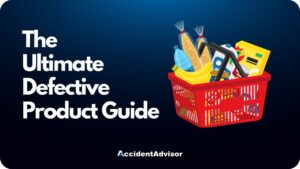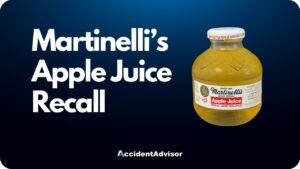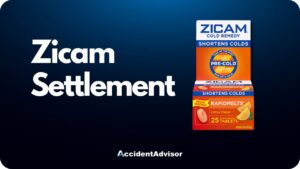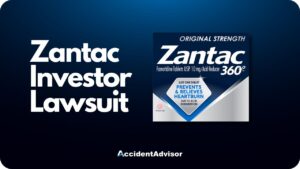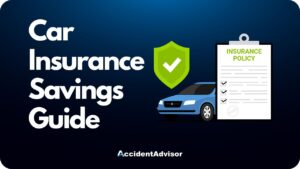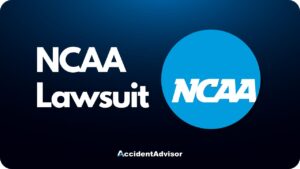It may come as a surprise to many that in recent years, specific models of Kia and Hyundai vehicles have reportedly become favorite targets for thieves due to a particular vulnerability—a startling revelation that has led to a significant auto theft lawsuit. The legal settlement, now known as the Kia and Hyundai Car Theft Settlement, provides an unexpected window into both the manufacturing oversights and the subsequent responsibilities of automakers to ensure their vehicles meet basic security standards.
For owners of certain model year 2011-2022 Kia and Hyundai vehicles, a class action lawsuit has emerged as a beacon of resolution, potentially offering compensation for those affected by such oversights. Specifically, those vehicles manufactured without an engine immobilizer have drawn legal scrutiny, leading to a substantial legal settlement potentially worth up to $145 million in stolen car claims and other relief efforts.
Key Takeaways
- A sizable number of Kia and Hyundai vehicles have been identified as susceptible to theft, inciting a major auto theft lawsuit.
- The Hyundai/Kia Vehicle Car Theft Defect Litigation has reached a preliminary settlement agreement, marking a victory for owners of targeted models.
- Owners may be eligible for up to $145 million in collective cash relief, aiming to compensate for uninsured theft damages.
- Notices regarding the settlement will be sent out with instructions on how to submit a claim and determine eligibility.
- A final approval hearing is scheduled for July 15, 2024, after which compensation could begin to be distributed to class members.
- Claimants can seek reimbursement for diverse expenses incurred because of vehicle theft, such as registration fees and insurance deductibles.
Understanding the Kia and Hyundai Car Theft Settlement
As a vehicle owner who values safety and security, the recent legal developments involving Kia and Hyundai have certainly caught my attention. The implications of this landmark settlement resonate deeply with consumers and highlight the significance of robust vehicle security measures. Let’s delve into the origins of the lawsuit and its outcomes for affected vehicle owners like me.
The Genesis of the Legal Proceedings
It’s disconcerting to learn that my car might have been an easy target for thieves due to a potential vehicle security breach. The core issue that triggered the legal proceedings stemmed from allegations regarding the absence of engine immobilizers in certain models, leaving them vulnerable to theft. These proceedings have set a precedent for automotive security standards and have emphasized the responsibility of manufacturers to ensure the safety of their products.
Key Allegations Against Kia and Hyundai
The allegations against Kia and Hyundai are serious. It’s unsettling to think that these vehicles, which were part of my daily life, may have been missing crucial anti-theft features. The lawsuit claims that from 2011 to 2022, Kia and Hyundai may not have equipped key-start vehicles with necessary security devices, making them attractive targets for car thieves. This oversight raised concerns not only about the risk of car theft itself but also brought to light the hidden costs and inconveniences that could impact and disrupt my life as a car owner.
The Class Action Lawsuit Settlement Overview
Following these allegations, the class action lawsuit reached a preliminary settlement, providing a semblance of relief for consumers like me. This proposed kia settlement and hyundai settlement is a victory for vehicle owners, offering compensation for out-of-pocket expenses related to the theft or damage of our cars. Licensing fees, sales taxes, and insurance deductibles possibly resulting from such incidents might now be recoverable, bringing some financial respite after a distressing ordeal of vehicle theft.
The settlement signifies a momentous step for affected Kia and Hyundai owners seeking car theft compensation and restores some faith in the legal system’s ability to protect consumer interests. Indeed, it is crucial that we remain informed and involved in such legal proceedings, which ultimately serve to uphold our rights and secure the accountability of corporate entities.
Eligibility and Class Membership for Claimants
Entering the landscape of a class action lawsuit as a consumer can be quite daunting; this is particularly true in a vast consumer rights case such as the auto manufacturers settlement involving Hyundai and Kia. As an individual navigating through this intricate legal matter, understanding your eligibility and determining if you fit the class membership criteria is paramount. This segment will outline the criteria necessary for inclusion and guide you on how to affirm your role within this unfolding consumer narrative.
Criteria for Class Member Inclusion
To be considered a class member in this sweeping legal action, you must have purchased or leased specific models of Hyundai or Kia vehicles—those not equipped with an engine immobilizer, stationed anywhere across the USA or its territories. Eligibility is not confined to experiencing vehicle theft firsthand; owning a qualifying vehicle suffices. Automakers and state vehicle records have been diligently combed to determine potential class members, ensuring a thorough inclusion process.
How to Determine Your Eligibility
Confirmation of your eligibility status is a straightforward, albeit critical step. The settlement websites dedicated to this case are your go-to resources for comprehensive guidelines and qualifying criteria. These platforms are pivotal in discerning your inclusion in the class and streamlining the claim submission process. Stay apprised of all developments to ensure your rightful place within the class is secured and represented.
Understanding your eligibility is not only about recognizing your right to participate—it’s about actively taking charge in a scenario where consumer rights have been brought to the fore. Here, you’re more than a claimant; you’re part of a collective standing against an oversight that could redefine industry standards. With all tools and information within reach, validating your eligibility is your first firm step towards potential restitution as a class member in this significant auto manufacturers settlement.
Kia and Hyundai Car Theft Settlement Compensation Breakdown

As someone who’s been closely following the Hyundai and Kia car theft legal proceedings, I’ve gathered crucial details on the types of compensation that can be expected for affected vehicle owners. Reaching into the nuances of the settlement, it becomes evident that financial remedies lean heavily on reimbursing victims for a myriad of out-of-pocket expenses related to these distressing events.
Financial Remedies for Out-of-Pocket Losses
The gravity of having your car stolen or damaged due to theft can be overwhelming. Understanding that, the settlement fund offers comprehensive theft compensation for such unfortunate incidents. It proposes reimbursements that cover not just vehicle loss or damages, but tangential costs you may have shouldered during the incident. These include registration fees and other related expenses often overlooked in such stressful times.
Software Upgrades as a Security Measure
To tackle the root issue of vehicle vulnerability, the settlement also accounts for software upgrades, aiming to mitigate potential theft. These software enhancements delivered by Hyundai and Kia serve as a proactive approach, intended to fortify vehicle security and provide owners with the peace of mind that their cars are better shielded against future crimes.
Reimbursement Options for Non-Eligible Software Upgrade Vehicles
There’s also a provision for cars that can’t benefit from software upgrades. This settlement acknowledges the protection of these vehicles by offering financial remedies that support the acquisition of aftermarket anti-theft devices. The intent here is to not leave any affected consumer without an option for heightened security measures.
Under the lenses of settlement compensation, financial remedies extend beyond temporary fixes, encompassing an array of support mechanisms designed to alleviate the complications associated with vehicle theft. Whether it’s a full recovery of the automobile’s value or supplemental income to cushion the costs incurred during the recovery process, the settlement is structured to support justice for all involved parties.
The Claim Process and Timeline
As we move forward in the process of seeking justice and compensation for owners affected by the Kia and Hyundai car theft cases, understanding the claim process and the settlement timeline is crucial. The intricate legal proceedings can be daunting, but being well-informed can help navigate through the complexities.
Deadline Dates for Settlement Claims
It’s imperative to mark your calendars with the essential deadlines for the settlement claims. By March 4, 2024, I expect to receive detailed instructions on how to be part of the settlement. If anyone chooses to object to or exclude themselves from the proceedings, the final date to do so is May 3, 2024. The anticipation around the approval order builds, with a potential resolution soon after July 15, the date set for the final hearing in 2024. Any alterations to this schedule will be promptly communicated, should appeals or other legal motions cause delays.
Steps for Submitting a Stolen Car Claim
Submitting a stolen car claim is a structured process that involves several critical steps. Accurate documentation and adherence to the official protocol will ensure that your claim is valid and processed in a timely manner. The conclusive date to file a claim is set for January 11, 2025, assuring ample time to collect necessary information and submit all required paperwork.
I can’t emphasize enough the significance of the claim process to each affected owner or lessee. It represents an opportunity to secure compensation for the losses endured, and staying informed can only aid in maneuvering through legal proceedings and reaching a fair settlement.
| Action Item | Deadline | Notes |
|---|---|---|
| Receive Notification | By March 4, 2024 | Look out for mail or email communication with complete details on participation and claim submission. |
| Opt-Out or Object | By May 3, 2024 | If deciding against participating or if objecting to terms, this is the cut-off date. |
| Final Approval Hearing | On July 15, 2024 | The outcome of this hearing will determine order approval and subsequent claim payments. |
| Submit Claim | By January 11, 2025 | All claims must be filed no later than this date for consideration for settlement funds. |
In summary, navigating the claim process, and understanding the settlement timeline are instrumental in successfully managing the legal proceedings involved in the stolen car claim. Diligence and timely action in these matters serve as the pillars of achieving rightful compensation.
Settlement Benefits: From Software Upgrades to Financial Compensation
The recent class action settlement involving Kia and Hyundai makes significant headway in addressing past issues and instilling confidence in consumers regarding vehicle security. As I delve into the comprehensive benefits offered by the settlement, it’s clear that affected vehicle owners and lessees stand to gain both enhanced security and deserved financial reprieve.
Security Improvements for Affected Models
Security improvements are at the forefront of the settlement benefits. I’m assured to learn that eligible vehicles will receive software upgrades designed to rectify the vulnerability, ensuring they cannot be started without an appropriate key. These improvements not only meet the expectations of vehicle safety but also offer peace of mind to owners and lessees, completely free of charge. This is a concrete step towards ameliorating the security flaws and fortifying vehicles against future theft attempts.
Potential Reimbursements and Financial Compensation
In addition to the software upgrades, the settlement outlines potential financial compensation, which encompasses a broad spectrum of losses incurred due to the past security breaches. For those with models not eligible for the software upgrades, the settlement provides reimbursement for alternate theft-deterrent devices, thus embracing a flexible approach to enhance vehicle security. I appreciate the settlement’s thoroughness in addressing the financial impacts, offering up to $350 in reimbursement per replacement key fob required for the upgrades. The inclusion of these details emphasizes the settlement’s commitment to providing substantial relief to affected consumers and cements its status as a class action settlement that prioritizes tangible benefits.
Settlement Benefits: From Software Upgrades to Financial Compensation
The Genesis of the Legal Proceedings
The legal proceedings began as a response to increased thefts targeting specific Kia and Hyundai models lacking essential anti-theft devices, such as engine immobilizers, thus initiating the class action lawsuit.
Key Allegations Against Kia and Hyundai
The key allegations claim that from 2011 to 2022, Kia and Hyundai neglected to install engine immobilizers in vehicles with traditional key-start ignition systems, making them susceptible to theft.
The Class Action Lawsuit Settlement Overview
In the proposed settlement, valued at up to $145 million, the automakers have agreed to compensate owners and lessees for various out-of-pocket expenses associated with vehicle theft and to fund preventive security upgrades.
Criteria for Class Member Inclusion
Individuals who purchased or leased specific Kia and Hyundai models without an engine immobilizer in the United States and its territories are eligible for the class action settlement.
How to Determine Your Eligibility
Eligibility can be determined by visiting the settlement website, which provides full instructions and criteria for verifying whether your vehicle is included in the settlement.
Financial Remedies for Out-of-Pocket Losses
The settlement will compensate for out-of-pocket losses such as vehicle value for total losses, deductibles, incurred costs like towing or transportation, and additional expenditures due to theft.
Software Upgrades as a Security Measure
Eligible vehicles will receive a software upgrade to improve security by preventing the vehicle from starting without the key. This upgrade is provided at no cost to the owner or lessee.
Reimbursement Options for Non-Eligible Software Upgrade Vehicles
Owners and lessees of vehicles that are not eligible for software upgrades may claim up to $300 for the purchase of aftermarket anti-theft devices.
Deadline Dates for Settlement Claims
The deadline to opt out or object to the settlement is May 3, 2024, while the final approval hearing is scheduled for July 15, 2024. The claim submission deadline is January 11, 2025.
Steps for Submitting a Stolen Car Claim
Affected individuals should follow the instructions provided in the notice to submit their claim via mail, email, or through the official settlement website.
Security Improvements for Affected Models
The settlement includes provisions for software upgrades at authorized dealerships to improve vehicle security and prevent future thefts.
Potential Reimbursements and Financial Compensation
In addition to security upgrades, the settlement offers financial reimbursements for theft-related losses and expenses, covering a wide range of claims to mitigate the impact of the vehicle security breach.
Q: What is the nature of the Kia and Hyundai car theft settlement?
This settlement is the result of a class action lawsuit alleging that certain vehicles were manufactured without essential anti-theft devices, thus providing car theft compensation to affected owners and lessees.
Q: How can I find out if I am eligible for the settlement?
You can determine your eligibility by visiting the settlement website and reviewing the criteria for class member inclusion, or you may receive a notice if the manufacturers have identified you as a potential class member.
Q: What kind of compensation can I expect from the settlement?
Compensation may include reimbursement for out-of-pocket expenses related to car theft, such as vehicle value loss, additional incurred costs, and payments for software upgrades or anti-theft devices.
Q: Are there any deadlines I need to be aware of for the settlement?
Yes, you need to be aware of the deadline to object to or opt-out of the settlement by May 3, 2024, and the claim submission cutoff date of January 11, 2025.
Q: What if my vehicle does not qualify for a software upgrade?
If your vehicle is not eligible for a software upgrade, you may be entitled to receive up to $300 to cover the cost of an aftermarket anti-theft device.

Rocky Horton
Author
Rocky Horton is a health and safety expert from Chapel Hill, NC. He is the founder of AccidentAdvisor and has been featured in Forbes, Bloomberg, and other publications. Learn more.



